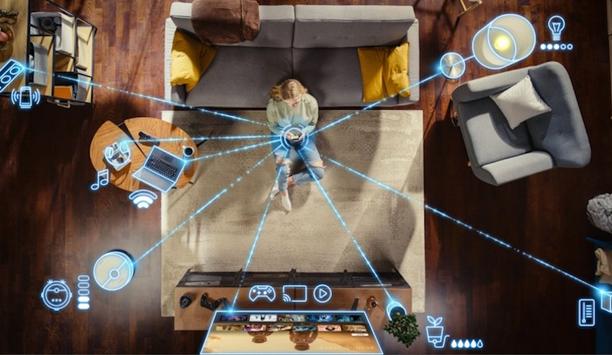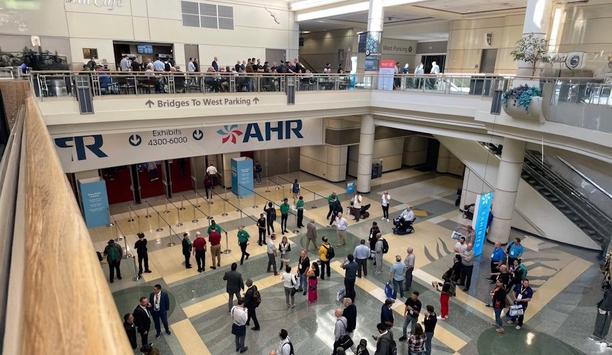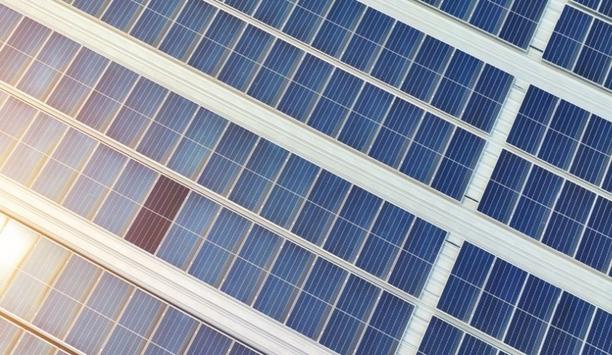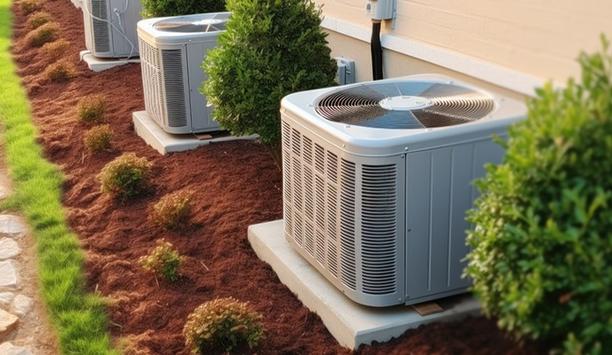Closed and cramped environments are especially problematic to the spread of the novel coronavirus that causes COVID-19. A ‘smart’ glass-paneled bus stop shelter, developed in Korea, embodies new approaches to making such spaces safe, including elements of HVAC.
Smart shelters
The smart shelters are closed-in glass cubes that serve as bus stops in the Seongdong district in northeastern Seoul, South Korea. The local district office collaborated with LG Electronics to develop the futuristic technology, which is designed to combat summer heat, monsoon rain and the novel coronavirus (COVID-19).
Air conditioning and ultraviolet (UV) light sterilizers clean and cool the air
Air conditioning and ultraviolet (UV) light sterilizers clean and cool the air. A solar panel on the roof provides back-up power. Surveillance cameras keep watch over the bus riders and intelligent video, an alert bell and an artificial intelligence (AI) noise sensor can provide information immediately to police and fire professionals, in case of an emergency response.
Equipped with digital video screens
Digital video screens provide warning when a bus approaches, and the sound system plays therapeutic music. Other amenities include free WiFi, charging stations for laptops or mobile phones, and even hand sanitizer.
A thermal camera mounted at the entrance measures temperatures and allows entry through the automatic doors only to those with temperatures below 99.5 degrees Fahrenheit (37.5 degrees Celsius). Mounted at a lower height is a separate camera installed for children.
Smart bus shelters to prevent COVID-19 spread
A Seongdong district official said the smart shelters provide an environment where people can escape scorching weather and pouring rain, while preventing virus infections.
The smart bus shelters represent a new approach to preventing coronavirus infection. Ideally, people should avoid small, closed-in spaces during the COVID-19 pandemic. However, crowded urban areas make it harder to do so. Also, the persistence of the pandemic and its continuation for months and likely into 2021, makes development of new solutions even more urgent.
Technologies to protect against infection
When social distancing is difficult, solutions such as the smart shelters will enable societies to return to some semblance of normalcy. However, people entering the shelter are still encouraged to wear masks, practice good hygiene and to stay one meter apart from others.
Such technology developments will be crucial in large cities around the world, where crowded populations cannot return to their productive lives until additional mitigating approaches are developed to slow the virus spread.
Avoiding disruption of transportation infrastructure
Smart shelters contribute positively to economic recovery as the coronavirus impact subsides
By helping to ensure operation of the transportation infrastructure, the smart shelters can contribute positively to economic recovery as the coronavirus impact subsides.
However, the smart shelters are expensive, about a million dollars for the 10 units installed in South Korea or some US$ 84,000 for each shelter. Since they were installed, each shelter has been used by about 300 to 400 people a day. Obviously, many more of the shelters would be needed to provide a comprehensive solution.
New innovations to counter continuous pandemic spread
South Korea has not been spared by the novel coronavirus, despite deployment of widespread testing and tracing. The country is credited with waging one of the world’s most successful fights against COVID-19 and never imposed a nationwide lockdown.
Of the country’s more than 50 million people, there have been around 23,000 cases and 385 deaths. However, as Asia’s fourth largest economy, the country has continued to suffer persistent outbreaks, especially in the more densely populated areas.
The smart shelter demonstrates the need for new innovative solutions to address the novel coronavirus, and the important role of HVAC systems as a component of those solutions.





































